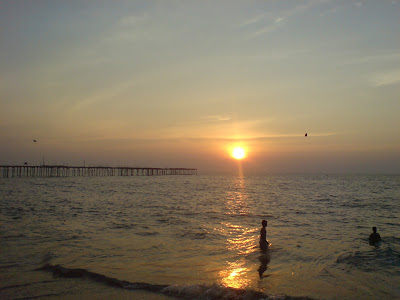Tourism plays a very vital role in India as well as other countries due to the large intake of money for businesses with their goods and services and the opportunity for employment in the service industries associated with tourism.
Alappuzha is also one of the major tourist centre in india. It is mainly famous for its backwater tourism. Alappuzha also known as the Venice Of The East is famous in all over the world for its untouched natural beauty.
Geography
The name Alappuzha is derived from 'Aal(Sea/Ocean)+ puzhai(River/mouth)(The joint place of river and Sea)' (Malayalam/Tamil ). Alappuzha is bordered by Pathanamthitta and Kottayam districts to the east, Kollam district to the south, Ernakulam district to the north and the Arabian Sea to the west.
Alleppey Coastal Plains are formed of Quaternary sediments.
A series of dunes and ridges marking the repeated regressional and transgressional events characterize this coastal plain. The soil of the area belongs to the group of Tropopsamments - Tropofluvents, commonly called coastal alluvium. Major water bearing formations are Tertiary sedimentary formations and weathered and fractured crystalline formations. The land form possesses ridge and swale topography formed in the late Quaternary geologic period.
Allepey's Beach is one of the most beautiful of its kind throughout the entile Malabar Coast. Its more spectacular to view the beach during dusk. Tourists will be more during evening especially to the spectacular sunset.
Tourism
Alappuzha is now the hub for backwater tourism in Kerala.
Houseboats locally called "Kettuvallam" are available for hire on a daily basis as well as for longer durations to take visitors on the old waterways. These houseboats in general have two bedrooms and attached bathrooms. Some have bedrooms fitted with air conditioners.
A routine trip includes food cooked on board in the traditional Kuttanad style
Alappuzha is also one of the major tourist centre in india. It is mainly famous for its backwater tourism. Alappuzha also known as the Venice Of The East is famous in all over the world for its untouched natural beauty.
Geography
The name Alappuzha is derived from 'Aal(Sea/Ocean)+ puzhai(River/mouth)(The joint place of river and Sea)' (Malayalam/Tamil ). Alappuzha is bordered by Pathanamthitta and Kottayam districts to the east, Kollam district to the south, Ernakulam district to the north and the Arabian Sea to the west.
Alleppey Coastal Plains are formed of Quaternary sediments.
A series of dunes and ridges marking the repeated regressional and transgressional events characterize this coastal plain. The soil of the area belongs to the group of Tropopsamments - Tropofluvents, commonly called coastal alluvium. Major water bearing formations are Tertiary sedimentary formations and weathered and fractured crystalline formations. The land form possesses ridge and swale topography formed in the late Quaternary geologic period.
Allepey's Beach is one of the most beautiful of its kind throughout the entile Malabar Coast. Its more spectacular to view the beach during dusk. Tourists will be more during evening especially to the spectacular sunset.
A Sunset View from Alappuzha Beach
Tourism
Alappuzha is now the hub for backwater tourism in Kerala.
Houseboats locally called "Kettuvallam" are available for hire on a daily basis as well as for longer durations to take visitors on the old waterways. These houseboats in general have two bedrooms and attached bathrooms. Some have bedrooms fitted with air conditioners.
A routine trip includes food cooked on board in the traditional Kuttanad style



Nice
ReplyDeleteBus Ticket Online Booking
Bus Ticket Online Booking
This comment has been removed by the author.
ReplyDelete